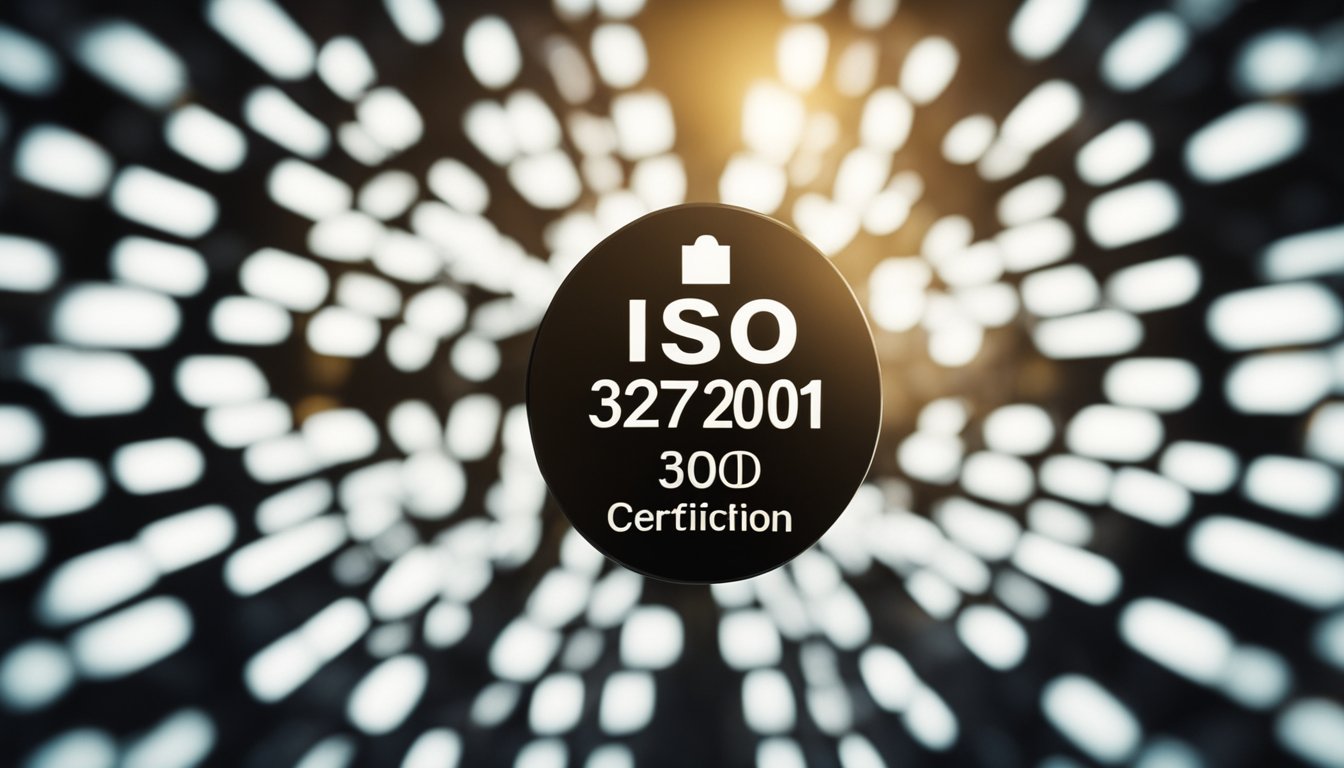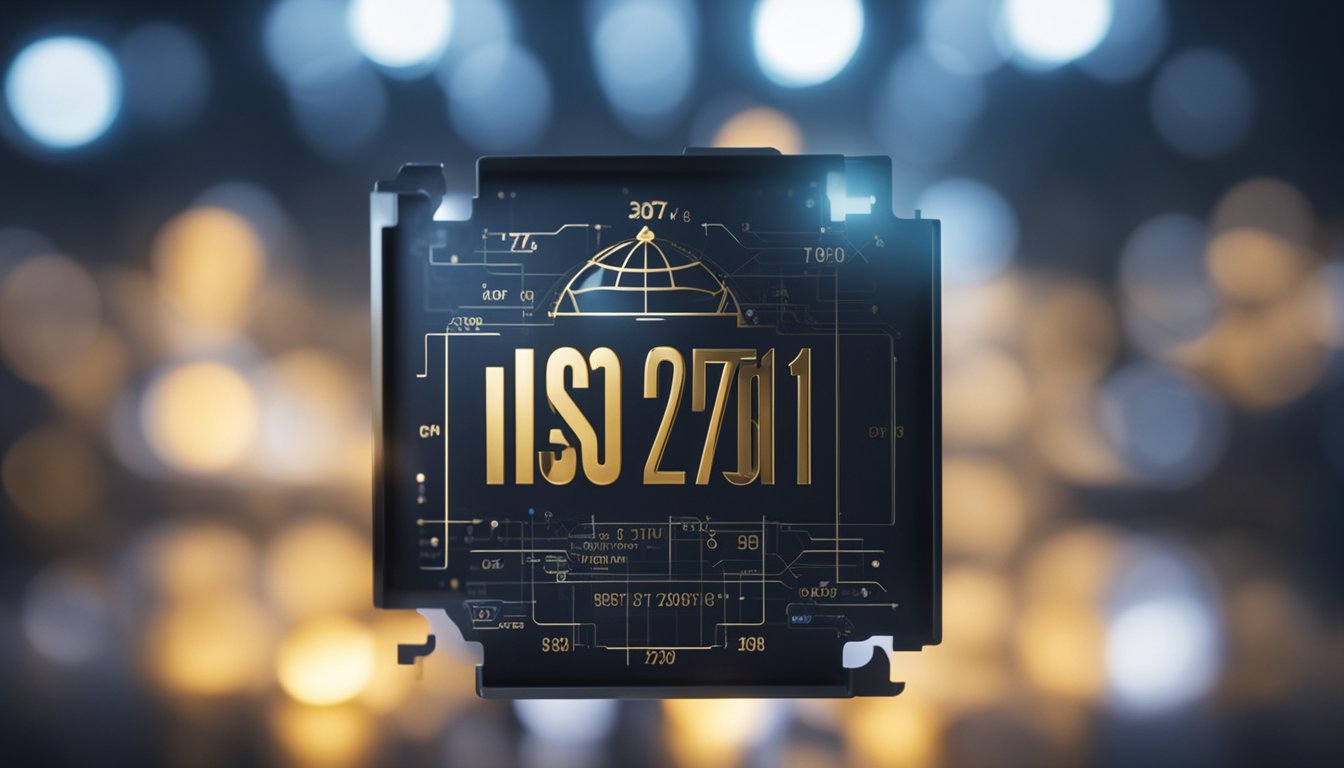
I am proud to announce that our organization has achieved ISO 27001 certification, a globally recognized standard for information security management. This certification demonstrates our commitment to ensuring the confidentiality, integrity, and availability of our information assets.

ISO 27001 is an international standard that specifies the requirements for establishing, implementing, maintaining, and continually improving an information security management system (ISMS). It provides a systematic approach to managing sensitive company information so that it remains secure. The standard covers a range of security measures, including access controls, cryptography, physical security, and business continuity planning.
Achieving ISO 27001 certification is an important milestone for any organization that takes information security seriously. It demonstrates to customers, stakeholders, and partners that the organization has implemented an effective ISMS that meets the highest standards of security. It also provides a competitive advantage in the marketplace, as more and more organizations require their suppliers and partners to be ISO 27001 certified.
Key Takeaways
- ISO 27001 is an international standard for information security management that specifies the requirements for establishing, implementing, maintaining, and continually improving an information security management system (ISMS).
- Achieving ISO 27001 certification demonstrates an organization's commitment to ensuring the confidentiality, integrity, and availability of its information assets.
- ISO 27001 certification provides a competitive advantage in the marketplace and is increasingly required by customers, stakeholders, and partners.
Understanding ISO 27001 Certification

As an expert in information security, achieving ISO 27001 certification is a significant milestone for me and my organization. ISO 27001, also known as ISO/IEC 27001:2013, is the international standard for information security management systems (ISMS).
The certification process involves implementing and maintaining a comprehensive ISMS that meets the requirements of the ISO 27001 standard. This includes identifying and managing risks to the confidentiality, integrity, and availability of information, as well as complying with applicable laws and regulations.
The benefits of achieving ISO 27001 certification are numerous. It provides a framework for managing information security risks in a systematic and cost-effective way, improves the organization's credibility and reputation, and demonstrates a commitment to protecting sensitive information. Additionally, it can help to reduce the likelihood of data breaches and other security incidents.
To achieve certification, an organization must undergo a rigorous audit process conducted by an accredited certification body. This includes a pre-assessment, stage 1 and stage 2 audits, a surveillance audit, and recertification every three years.
In summary, achieving ISO 27001 certification is a significant accomplishment for any organization that values information security. It provides a framework for managing risks and complying with applicable laws and regulations, and demonstrates a commitment to protecting sensitive information.
Importance of ISO 27001 for Organizations

As an organization, achieving ISO 27001 certification is essential for many reasons. ISO 27001 is an international standard that outlines best practices for implementing and managing an information security management system (ISMS). By obtaining this certification, organizations can demonstrate their commitment to information security and gain a competitive advantage.
One of the primary benefits of achieving ISO 27001 certification is improved business continuity. Organizations that implement ISO 27001 can identify and manage information security risks, which helps to ensure that critical business processes are not disrupted. Additionally, ISO 27001 requires organizations to implement security controls that can help mitigate the impact of cyber attacks and other security incidents.
Another key benefit of ISO 27001 certification is improved cybersecurity. Organizations that implement ISO 27001 are required to conduct regular vulnerability management activities, which can help identify and address potential security weaknesses. By improving their security posture, organizations can reduce their cyber risk and protect their data and information technology assets.
Achieving ISO 27001 certification can also help organizations attract new business and employees. By demonstrating their commitment to information security, organizations can build trust with clients and customers. Additionally, ISO 27001 certification can help organizations differentiate themselves from competitors who are not certified.
In summary, achieving ISO 27001 certification is essential for organizations that want to improve their business continuity, enhance their cybersecurity, and attract new business and employees. By implementing best practices for information security management, organizations can reduce their vulnerability to cyber attacks and protect their critical data and information technology assets.
ISO 27001 and the Role of AI in Security Management

As a cybersecurity company, achieving ISO 27001 certification is a significant milestone for our organization. It demonstrates our commitment to maintaining the highest level of security practices for our customers.
ISO 27001 is an internationally recognized standard for Information Security Management Systems (ISMS). It defines the requirements that an ISMS must meet to establish, implement, maintain, and continually improve an information security management system. The standard is designed to help organizations of any size and from all sectors of activity to protect their digital assets.
With the advent of digital transformation, the need for secure products and services has become more important than ever. This is where AI plays a crucial role in security management. AI-powered computing platforms can help organizations identify and mitigate potential security threats in real-time.
AI can also help organizations streamline their security practices by automating routine tasks, freeing up resources to focus on more critical security issues. By leveraging AI, organizations can stay ahead of the curve and ensure that their security practices are always up-to-date and effective.
In conclusion, achieving ISO 27001 certification is a crucial step in maintaining the highest level of security practices for our customers. AI-powered computing platforms can help organizations stay ahead of the curve and ensure that their security practices are always up-to-date and effective. As a cybersecurity company, we are committed to providing our customers with the most secure products and services possible, and achieving ISO 27001 certification is a testament to that commitment.
Achieving ISO 27001 Certification

As a professional working in the field of information security, achieving ISO/IEC 27001:2013 certification is a significant milestone in my career. This certification demonstrates that my organization has established, implemented, maintained, and continually improved an information security management system that meets international standards.
To achieve ISO/IEC 27001 certification, my organization underwent a rigorous assessment process conducted by a third-party auditor. The auditor evaluated our information security risks and assessed whether our information security management system met the requirements of the standard. This process helped us identify areas where we needed to improve our information security practices.
The benefits of achieving ISO/IEC 27001 certification are numerous. For one, it provides our customers with assurance that their data is adequately protected. Additionally, it helps us comply with legal requirements related to data security and privacy. Achieving certification also demonstrates our commitment to information security to our executive leadership, employees, and customers.
During the certification process, we collaborated with various departments within our organization, including human resources, software development, and customer support functions. This collaboration helped us establish a culture of information security throughout the organization.
To maintain our certification, we continually monitor our information security management system and assess our information security risks. We use tools such as Tenable.io and Tenable.sc to manage our cyber exposure and ensure that we remain compliant with the standard. We also stay up-to-date with the latest developments in cloud security by following the Cloud Security Alliance's guidance.
Overall, achieving ISO/IEC 27001 certification has been a valuable experience for my organization. It has helped us improve our information security practices and demonstrate our commitment to information security to our customers and stakeholders.
Frequently Asked Questions

What is the process for achieving ISO 27001 certification?
The process for achieving ISO 27001 certification involves several steps. First, the organization must establish an information security management system (ISMS) that meets the requirements of the ISO 27001 standard. This involves identifying and assessing risks, implementing controls to mitigate those risks, and monitoring and reviewing the effectiveness of those controls. Once the ISMS is established, the organization must undergo an internal audit to ensure that it is operating effectively. Finally, the organization must undergo an external audit by an accredited certification body to verify that the ISMS meets the requirements of the ISO 27001 standard.
How long is the ISO 27001 audit?
The length of the ISO 27001 audit depends on the size and complexity of the organization. Typically, the audit takes between one and five days to complete. During this time, the auditor will review the organization's ISMS documentation, interview staff, and observe the implementation of controls.
What is the timeline for ISO 27001 certification?
The timeline for ISO 27001 certification varies depending on the organization's readiness and the certification body's availability. Typically, the process takes between three and six months to complete. This includes the time required to establish the ISMS, undergo the internal audit, and undergo the external audit.
Who performs the ISO 27001 certification?
ISO 27001 certification is performed by accredited certification bodies. These bodies are independent organizations that have been authorized by accreditation bodies to perform ISO 27001 certification audits. It is important to choose a reputable certification body that has experience in the organization's industry.
What is the cost of ISO 27001 certification?
The cost of ISO 27001 certification varies depending on the size and complexity of the organization, as well as the certification body chosen. Typically, the cost includes a certification fee, as well as fees for the internal and external audits. It is important to budget for ongoing costs, such as surveillance audits and recertification audits.
How can I verify my ISO 27001 certification?
Organizations that have achieved ISO 27001 certification will receive a certificate from the certification body. This certificate can be verified by contacting the certification body directly. Additionally, the organization can use the ISO 27001 certification logo on its marketing materials to demonstrate its certification status.




